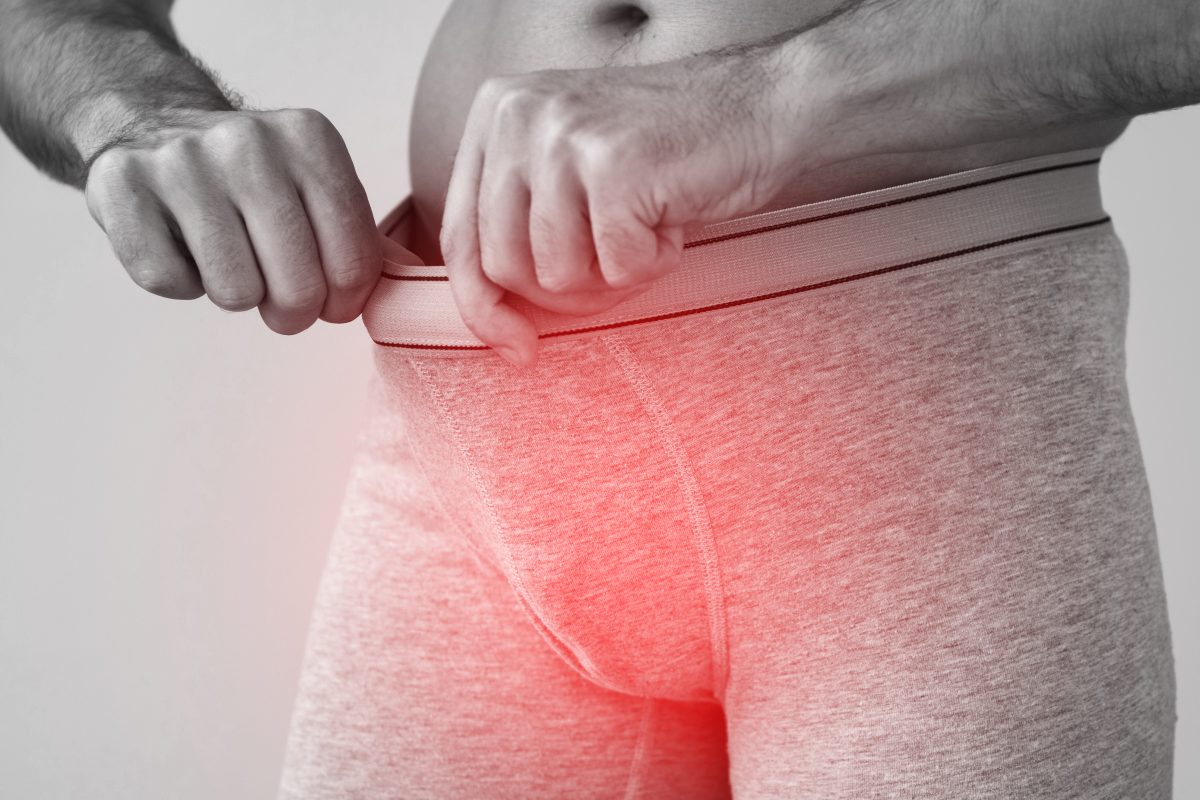Is Orchitis an STD?
This is a question that we often get, so we decided to answer the question, Is Orchitis an STD? Hopefully, this short article with educate you more about Orchitis and put your mind at ease.
What is Orchitis?
Orchitis is a condition that affects the testicles, which are part of the male reproductive system. The testicles are located in the scrotum, which is a sac of skin located beneath the penis. Orchitis is the inflammation of one or both of the testicles, causing pain, swelling, and tenderness in the affected area.
There are many causes of orchitis, including infections, injuries, and autoimmune diseases. The most common cause of orchitis is a bacterial infection, such as mumps. Mumps is a viral illness that is spread from person to person through saliva or mucus. If a person with mumps is not vaccinated, the virus can spread to the testicles and cause orchitis.
In some cases, orchitis can also be caused by a sexually transmitted infection (STI), such as chlamydia or gonorrhea. These infections can cause inflammation in the reproductive tract, which can spread to the testicles and cause orchitis. Other causes of orchitis include injury to the testicles, such as a direct blow to the area, or an autoimmune disease, such as lupus or rheumatoid arthritis.

Orchitis Symptoms
The symptoms of orchitis can vary depending on the cause, but common symptoms include pain and swelling in the testicles, tenderness in the affected area, and a decrease in the size of the affected testicle. Some men may also experience a fever, chills, and a headache, which are signs of an infection. In severe cases, orchitis can cause infertility, as the inflammation can damage the testicles and affect their ability to produce sperm.
Diagnosing orchitis involves a physical exam and a review of the patient’s medical history. The doctor will examine the testicles and scrotum to check for signs of swelling and tenderness. They may also take a blood sample to check for elevated levels of white blood cells, which are a sign of an infection. In some cases, the doctor may also order an ultrasound or CT scan to get a better view of the affected area and to rule out any other conditions.
Treatment for orchitis depends on the underlying cause of the condition. If the cause is an infection, the doctor will prescribe antibiotics to treat the infection. In some cases, the doctor may also recommend over-the-counter pain medications, such as ibuprofen, to relieve the pain and swelling associated with orchitis. If the cause of the orchitis is an injury, the doctor may recommend rest and a scrotal support to reduce the pressure on the affected area and help it heal.
In severe cases, orchitis may require surgical treatment, such as an orchiectomy. An orchiectomy is a procedure in which the affected testicle is removed. This procedure is usually only recommended if the orchitis is causing severe pain or if it is affecting the man’s ability to father a child.
Preventing orchitis is largely dependent on preventing the underlying cause of the condition. For example, getting vaccinated against mumps can help prevent the spread of the virus and reduce the risk of orchitis. Practicing safe sex and using condoms can help prevent the spread of sexually transmitted infections, which can cause orchitis.

In conclusion, orchitis is a condition that affects the testicles and can cause pain, swelling, and tenderness in the affected area. It can be caused by a bacterial infection, such as mumps, a sexually transmitted infection, injury, or an autoimmune disease.
Is Orchitis an STD?
Orchitis can be caused by a sexually transmitted infection (STI), such as chlamydia or gonorrhea, but it can also be caused by other factors, such as a viral infection like mumps, injury, or autoimmune diseases. So while orchitis can be an STI in some cases, it is not always classified as one. It is important to understand the underlying cause of orchitis in order to determine the best course of treatment. Orchitis is not an STD, but it can be caused by STIs.
We offer the easiest STD testing options in the industry, so if you wake up with testicle pain one day, you can put your mind at ease by taking an STD test.
Medically Reviewed by Kaci Durbin, MD, MBA, FACOG on February 5, 2023
Secure and Confidential
STD testing services
The fastest results possbile - available in 1 to 2 days

Tagged
Categorized As
Author: STD Check Editorial Team
At STDCheck.com, we go to great lengths to ensure quality content. We’re using our own collection of data. It is not bought or made up for “click-bait” purposes. We don’t entice traffic with cheesy graphics or raunchy headlines. Our information is to promote STD testing, educate people, let go of social stigmas, and bring awareness. We also provide a completely confidential atmosphere through private testing. When we produce an article, it is fact-based. We check it with medical advisors that approve it. Our staff consists of doctors and other medical professionals who peer review the content we make available on STDCheck.com. From all over the world, we have sourced the best and the brightest content developers, including medical professionals, marketing engineers, data scientists, content specialists, and media relations.




